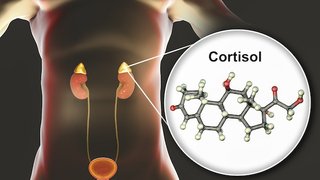'The pill' for guys: Male birth control option passes safety tests
April 30, 2019

A male birth control pill has passed the first round of clinical testing, giving hope for less permanent contraception options for men – and potentially leveling the playing field when it comes to pregnancy prevention.
In the U.S., approximately 40 percent of pregnancies are unplanned. This is partly because society dictates that, unfairly, women are primarily responsible for pregnancy prevention and family planning. Historically, contraception options for men have not been optimal:
- Abstinence (not feasible)
- Condoms (not 100-percent reliable)
- The withdrawal method (ineffective)
- Vasectomy (potentially permanent and a little scary to many men)
The male birth control pill could offer a more flexible option for men while also reinforcing two important facts: that men and women are both responsible for contraception, and that men could take a more active and satisfying role in their reproductive health
How does the male birth control pill work?
Dimethandrolone undecanoate (DMAU) is a once-daily pill that suppresses two types of male hormones – follicle-stimulating hormone (FSH) and luteinizing hormone (LH) – to simultaneously decrease production of testosterone and sperm without causing symptoms of low-testosterone (low-T).
Data from a study published in The Journal of Clinical Endocrinology and Metabolism suggests DMAU, the current oral contraception evaluated, has the potential to do just that. Eighty-two men ages 18 to 50 were randomly given either a placebo or one of three doses of the pill for 28 days. Those who took the highest dosage (400 mg) had lower levels of testosterone, FSH, and LH. However, the study did not measure sperm count.

Some participants (including some on the placebo) reported mild side effects, such as:
- Acne
- Headaches
- Mild erectile dysfunction
- Reduced sex drive
- Tiredness
- Weight gain of 5 lbs. or less
The next steps in studying DMAU will be to determine whether it actually suppresses sperm production. Initial data indicate that it’s possible. However, the body needs up to 90 days to produce sperm, and longer trials are necessary to confirm whether sperm production can be stopped completely.
Additionally, we’ll need to discover its long-term effects on the body. For example, we don’t know yet whether DMAU can cause depression issues or increase the risk of blood clots like the female birth control pill, or whether it might damage the liver, kidneys, or other organs that help break down the drug.
Why not just get a vasectomy?
Vasectomy is similar in effectiveness to the female intrauterine device (IUD) with a failure rate of less than 1 percent. The procedure can be reversible under the care of a fellowship trained surgeon. However, reversal is not guaranteed.
Fewer than 15 years after surgery, success rates for reversal are generally between 95 and 98 percent. However, after 15 years, the success rate dips to 60 or 70 percent. And the rate of achieving pregnancy after a reversal is much lower at 40 to 50 percent.
As a male infertility specialist and urologist, I often see men in their mid-20s who don’t want children right now. When they request a vasectomy, all we can do is counsel them to consider the permanency of the decision. In the future, DMAU could be an effective contraception option that can allow more flexibility and reduce potential infertility later in life.
Improving young men’s health
Young adults don't see doctors as often as they perhaps should. For women, sometimes pursuing health care occurs because access to reliable birth control is limited if they don't. But, more and more, there's a move to not tie doctor visits to access to birth control.
This could benefit their overall health in a number of ways. They’ll have the opportunity to take a more active role in their care by asking questions and being more proactive. Second, doctors can address preventive care and concerns men might not otherwise bring up until they’re in crisis mode, such as high blood pressure, erectile dysfunction, low libido, and other common concerns that can be prevented or managed.
'Commercial release of (male birth control pill) could take a decade or longer, but it’s nice to see research pursuing new treatment options that promote shared accountability for contraception.'
Tolulope Bakare, M.D.
If DMAU works like female contraceptives, men can stop taking it and resume sperm production when they’re ready to become fathers. The ultimate goal is to create an injectable version of the drug so patients won’t have to remember to take a daily pill.
In the future, teen boys might also be able to go on DMAU. Many parents already put their teen daughters on the pill to prevent pregnancy and help regulate sporadic or heavy periods. However, it will still be important to use condoms to prevent sexually transmitted infections.
Commercial release of DMAU could take a decade or longer. During this time, it’s nice to see research pursuing new treatment options that promote shared accountability for contraception. Women may no longer have to carry full responsibility for reversible, highly effective forms of contraception. The fact that this pill is being studied gives options to patients with a variety of circumstances, and the mindset shift is encouraging.
Stay on top of health care news. Subscribe to our blog today.











